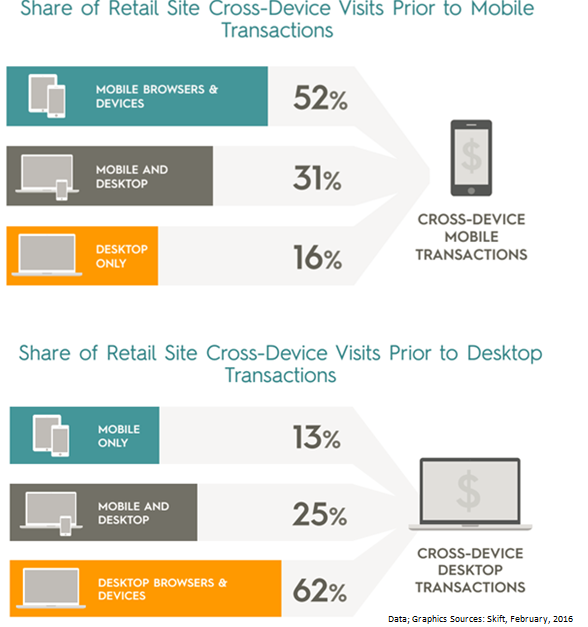Why Mobile Payments Are Finally the Next Big Thing in Travel
For the last few years, mobile payments have been predicted to be the next big thing in the travel  industry. Analysts and industry insiders have long speculated the disruption mobile payment technology will have on the way travelers shop and complete online bookings, as well as the way travel companies and OTAs use mobile technology to reach as many customers as possible. But recent advancements in mobile technology, specifically in affordability and availability, are making it possible for mobile payments to actually take hold sooner rather than later in today's travel industry.
industry. Analysts and industry insiders have long speculated the disruption mobile payment technology will have on the way travelers shop and complete online bookings, as well as the way travel companies and OTAs use mobile technology to reach as many customers as possible. But recent advancements in mobile technology, specifically in affordability and availability, are making it possible for mobile payments to actually take hold sooner rather than later in today's travel industry.
Mobile payment capability is often called the last true pain point in the true digitization of the travel industry - the last element of the travel industry where technology has yet to truly revolutionize how travel companies and customers interact. So the question is: Why are mobile payments finally emerging as a practical technology? Why now? What are the key drivers behind the rise in mobile payment technology?
To help address these questions, here are just a few things to consider about why mobile payments are finally the next big thing in the modern travel industry.
Numbers Don’t Lie
Even though the mobile payment landscape is still somewhat fragmented, mobile payments in the U.S. travel industry totaled more than $8.6 billion last year. That’s a staggering amount for a technology that is still on the rise in a number of regions across the globe. Based on a broader acceptance of mobile payments in the travel industry and more user-friendly platforms, industry analysts believe mobile payments could generate as much as $27 billion in the U.S. in 2016, effectively tripling the total from just one year prior. As mobile capabilities grow and continue to reach into emerging markets around the world, the potential for mobile payments to generate even more revenue is something travel companies simply cannot ignore as they develop and revise their mobile strategies.
Keeping it Simple
Making the mobile travel booking experience easier, faster, and more efficient for customers is a top priority for travel companies when they overhaul or implement their mobile platforms. While research indicates abandonment rates are much lower for mobile booking compared with more traditional online booking, mobile payment options are the logical next step in making it simple for travelers to research, book, and purchase travel packages from their mobile device. Travel brands have recognized mobile payments are the last hurdle for travelers in a 100 percent mobile travel experience and are working to simplify the in-app travel booking experience to further reduce mobile abandonment and increase customer satisfaction and retention. The speed, ease, and convenience of mobile payments is driving more and more travelers to engage with travel companies who offer integrated mobile payment options.
The Digital Wallet
Because so many e-commerce services, apps, and platforms operate on the concept of the digital wallet, travel brands have become more receptive to mobile payments in an effort to reach as many travelers as possible. Research indicates the rise of the digital wallet comes with some interesting purchasing trends, such as increased brand loyalty and impulse purchases. Travel companies looking to capitalize on these consumer trends have begun incorporating mobile payments as a way to build a steady stream of return customers who are more inclined to complete both large and small bookings based on the ease and variety of payment methods.
The Last Domino
As we mentioned at the beginning of this entry, mobile payments are the last domino or friction point in the digitalization of the travel landscape. The increasing sophistication of mobile technology is making it easy and cost-effective for travel companies to implement mobile payments as a value-added service, where just a few years ago such technology was plagued by security issues and simple operational difficulties. In addition, industry analysts predict global revenues from mobile bookings will increase by 22 percent in 2016 as more and more markets embrace the mobile experience. This means companies that leverage mobile payment options will have better access to this new customer pool as well as heightened visibility and influence in the mind of today’s traveler.
As you can see, it’s no secret why mobile payments are quickly on the rise as a critical value proposition for travel companies looking to remain competitive and growth-oriented. Mobile payments provide customers the speed and accessibility necessary to complete bookings in a virtual space where they already spend so much of their time. And for travel companies, meeting today’s customers where they live is crucial in driving growth and profitability.
You May Also Like
These Related Stories

Mobile Transactions & the Travel Industry: Infographics for 2016

Travel Apps By the Numbers


No Comments Yet
Let us know what you think